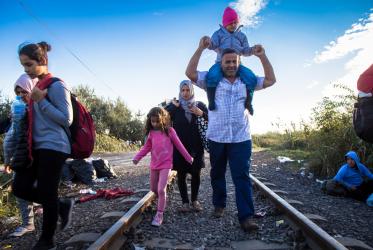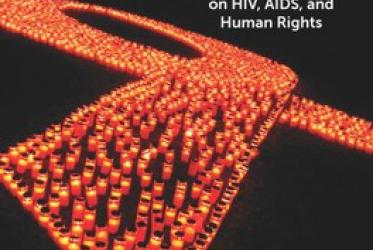Displaying 61 - 80 of 93
07 July 2017
G7 must address famine
22 May 2017
UN discussion focuses on women, HIV and property rights
21 March 2017
WCC book featured in UN discussion on gender, religions and health
16 September 2016
New Executive Committee members elected in Trondheim
28 June 2016
United Nations High Level Meeting on AIDS
06 May 2016
International affairs facilitator reflects on pilgrimage
31 March 2016
Symposium focuses on religion, violence, extremism
04 February 2016









